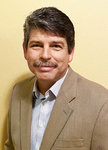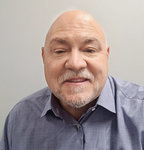


As part of the 2020 International Newspaper Group (ING) Leadership Networking Summit, ING and E&P decided to collaborate on the first annual ING/E&P Operations Allstar Awards, kicking off a partnership live at the Summit, which was scheduled for Sept. 18 to 20 in Chicago. Winners were to be announced at the Summit, but then our whole world changed when the COVID-19 pandemic hit, and the Summit and awards ceremony moved online.
Despite all the newspaper industry has endured in 2020, our operations leaders have not only survived but excelled during this difficult time. As a result, I believe the awards took on a special meaning and a higher degree of importance. Winners and nominees alike stepped up, showing us what can be done when this dedicated group of individuals puts their minds to it.
Winners were recently announced at America’s Newspapers virtual PIVOT Conference by Mark Hall, regional director Postmedia Canada and ING president, along with Mike Blinder, E&P publisher. The video can be viewed on the E&P website. Winners and nominees were awarded in two categories: local/regional operations and national/larger operations.
Recently, I spoke with the two Allstar winners to get their perspective on the current state of the industry through their eyes. So, let us honor and recognize these printing professionals who know and love ink and paper.
Regional Operations Allstar Winner
Steve Infinger, director of operations, The Villages (Fla.) Daily Sun
E&P: What brought you into the industry?
Infinger: Chance–I saw a recruitment ad in the classifieds (remember those?) I had a clear vision of what I was going to do with my life, which involved aviation, not presses. Working nights at the newspaper allowed me to work multiple jobs, which helped me pay for flight hours while in school. Although I did not intend for this to be my life’s work, I have never been bored or unemployed a single day since I started, so I feel I’ve had a good run.
In what position did you start your career in newspapers/printing, and what was the track forward into your current position?
Infinger: I started out as a teenager stacking down product off a press with no intent that ink would be on my hands for the rest of my career. I worked at both small and large circulation papers, some family owned and some corporate, and I found that I liked the family-owned companies better because of how they take care of the people working for them. Over the course of 36 years, I was assigned a wide range of responsibilities, most of which involved running operations. During that time, I lead quite a few capital projects that expanded my skill sets to allow me to do what I do today. I was never shy about taking on a challenge or learning whatever I could along the way.
What would you consider your management style?
Infinger: I have always followed more of a servant leadership style: utilizing, coaching and mentoring as my main management tools. I try my best to give our team the tools and training needed to be successful and then clearly define the expectations.
If we asked them, what would you hope individuals would say it’s like working for you?
Infinger: I’m sure you could plug in many “colorful comments” in for that question. What I would hope is that they feel they get a fair deal, which is pretty good these days. You would more than likely get something like “He’s a hard driver with high expectations for the team, but he is always there to help when needed.” I came up through the ranks, so I did most of the jobs in print production at one time or another. I have a high level of respect all of those that work tirelessly to meet the 24/7 commitments of a daily newspaper. My current production staff is comprised of some of the best folks I have ever worked with. They support each other and myself and make what we do look easy.
Tell us about the most challenging aspect of your current position.
Infinger: Time management is my biggest challenge. We have a full-slate of work running round the clock on our current presses and we are in the process of taking on even more. We also have multiple multi-year capital projects ongoing at the same time. I do my best to get away as much as possible, but I’m told I don’t do that very well. I’m rather lucky that we are given the resources to do our jobs well, which I know is not the norm anymore.
What’s your real secret to success in this career you’ve chosen?
Infinger: Good decisions, great people and some hard work mixed in. I have made some really good decisions over the years: what jobs to take, for whom I would work for and picking folks to be on my team. Everywhere that I chose to work turned out to be a great experience for myself and my family. I truly value the folks that have worked with me in the past and those that work with me today. I feel they always have my back, and I hope they feel the same way.
When most operations executives are concentrating on cost reductions, slimming staff and necessary cutbacks, what goals have you set for yourself and your organization to continue moving things forward?
Infinger: Our goals focus mainly on providing a quality, relevant product every day and giving the readers something that they really want to subscribe to. We still believe in print and what it can provide for our advertisers and the community as a whole. We are following a path far different than many others in the industry, not retreating but advancing forward. Our employees are dedicated to creating the best possible product with information and entertainment that you can’t get anywhere else. We continue to expand and grow, which includes the construction of a new print plant. Once completed, we will be able to offer that same dedication to quality print production to our commercial customers as well.
What personal attributes do you believe have made you the Operations Allstar you are today?
Infinger: I was told once, never be outworked. Show up early and be the last one out the door. I feel you need to have a strong work ethic to survive in this line of work and in these difficult times. Working in operations is not an easy assignment and it is not for the faint of heart. The ability to adapt and overcome unique challenges is also a key to success in our world; you never know what will be thrown at you from day to day.
Who has been most influential to your newspaper career?
Infinger: I have had the great fortune to work with some incredible people who helped me along the way, who were outstanding mentors and good friends. They pushed me into areas that I would not have gone on my own. Some of them are no longer with us, so I will not name just one or two, I will just say thank you to all who have been there for me over the years.
What’s your advice for an individual coming into our industry today?
Infinger: Well, the most common answer that everyone reading this would say is “Run away!” That being said, I still believe in printed products and the value that they bring to the community. The ideas of freedom of the press and the integrity of journalism have taken some hard blows the past couple of decades, but I feel they are important ideas to fight for and for the future of our republic. We need a new generation to fight for these ideas as well and continue the tradition.
National Operations Allstar Winner
John Morey, senior operations director, Gannett Publishing Services
E&P: What brought you into our industry?
Morey: Growing up, my father worked at the Detroit News. As a 12-year-old kid, I worked Saturday nights stuffing papers and assisted a DM running a route for single copy. Back then it was a different world. You had to know someone in the business or have a family member to help open the door. When I turned 18, my dad came home one night to tell me “You start work tomorrow.” As proud fathers are, he also warned me to not be late and to not embarrass him. I remember that advice and continue to practice it to this day.
In what position did you start your career in newspapers/printing, and what was the track forward into your current position?
Morey: I’ve been in the business 35 years. I started part-time as a truck loader, worked my way up to a DM, ran a circulation sales crew and became home delivery supervisor. From that point, with a diverse understanding of circulation, I moved to regional manager and then director. Operations management was an obvious progression.
What would you consider your management style?
Morey: Hands-on. I love that I can talk to people at all levels. I pride myself at being very accessible. It took a while to connect the dots and bring together all the various aspects of operations. I achieved this by being a good listener and understanding how employees feel. It’s important that employees share your perception that all things can be fixed, and we can make things better.
If we asked them, what would you hope individuals would say it’s like working for you?
Morey: I’m fair while being firm. I hold people to high expectations and I’m not afraid to tackle the tough challenges.
Tell us about the most challenging aspect of your current position.
Morey: Probably the constant day-to-day changes and keeping up with them. Trying to get all of the managers on the same page while moving at such a fast pace.
You seem to be a master at consolidations and necessary cost reductions. What special skills do you employ to accomplish this, and what is your end goal?
Morey: I consider my experience in the business and fortune to have worked in many different departments a major asset. Seeing how things operate through a clean set of eyes and always looking for, and finding a better way of doing things. I have the benefit of having a positive mindset and the ability to get others on-board. My motto is “You need to be comfortable being uncomfortable.” I look to streamline things in each process… a lot of people aren’t cut out for that.
What personal attributes do you believe have made you the Operations Allstar you are today?
Morey: I didn’t and couldn’t do it all myself. I had the support of a strong team, with everybody on board willing to do things differently once they see what is to be gained. Many times, we’ve completed tough projects and once people see where we’ve arrived their reaction is “We did it!” I’ve never been acknowledged on this level as an Operations Allstar, so this is awesome.
I am also thankful to many in the past for my experiences and background in distribution. Before coming into production, these experiences provided me with an excellent base and allowed me to take on additional responsibilities to the point where I now find myself responsible for all areas of the distribution and production operation.
Who has been most influential to your newspaper career?
Morey: After bringing me into this business, my dad passed away when I was 20. Driven by his confidence in my abilities and my own desire to do better, I have always wanted to progress to a higher level in the business. I also credit Frank Vega and Ed Humphrey for being valuable mentors and giving me opportunities on my way up through the ranks. Both believed in me enough to put me into my first director position and I appreciate that to this day.
What’s your real secret to success in this career you’ve chosen?
Morey: I’ve been fortunate to have been given many opportunities and haven’t shied away from anything that comes my way and have been very successful in every position I have taken on. This experience has allowed me to make good decisions and I’ve lived by never being afraid to face a challenge and never settling for doing things simply status quo.
What’s your advice for an individual coming into our industry today?
Morey: While I half-jokingly might say run the other way, newspapers and the industry in general have been very good to me and for this I am truly thankful. Things have changed over my 35 years and while things are now very different, I still appreciate the opportunities given to me and could never see myself doing anything else.
Any advice on best practices for our industry?
Morey: Gannett is definitely big on establishing and following best practices. To be successful we all collaborate well as a group. We communicate through meetings and have conference calls to discuss new ideas and continue to grow as a company and as individuals. Often, we’ll have four or five people get together, come up with a plan, meet on things and follow through rolling them out.
Jerry Simpkins has more than 30 years of experience in printing and operations in the newspaper industry. Contact him on LinkedIn.com or at simpkins@tds.net.
Comments
No comments on this item Please log in to comment by clicking here